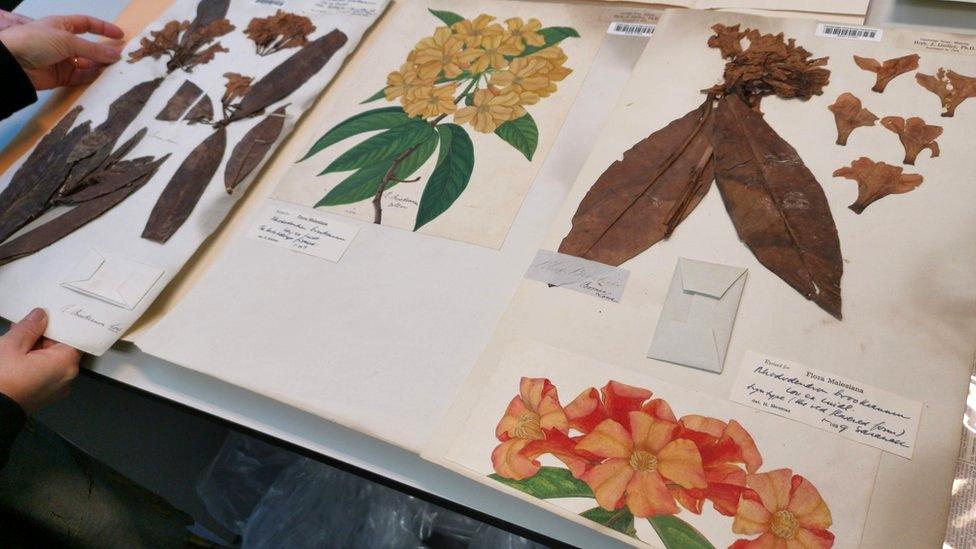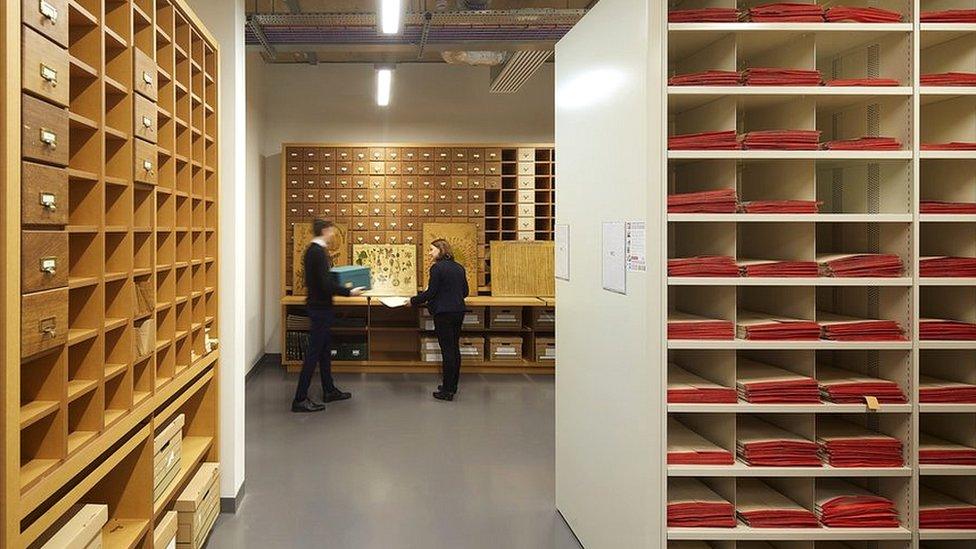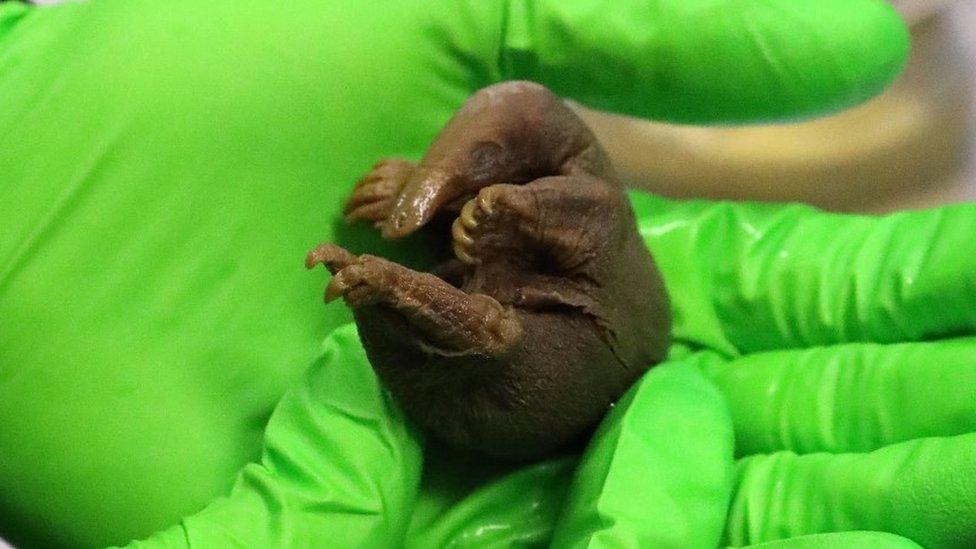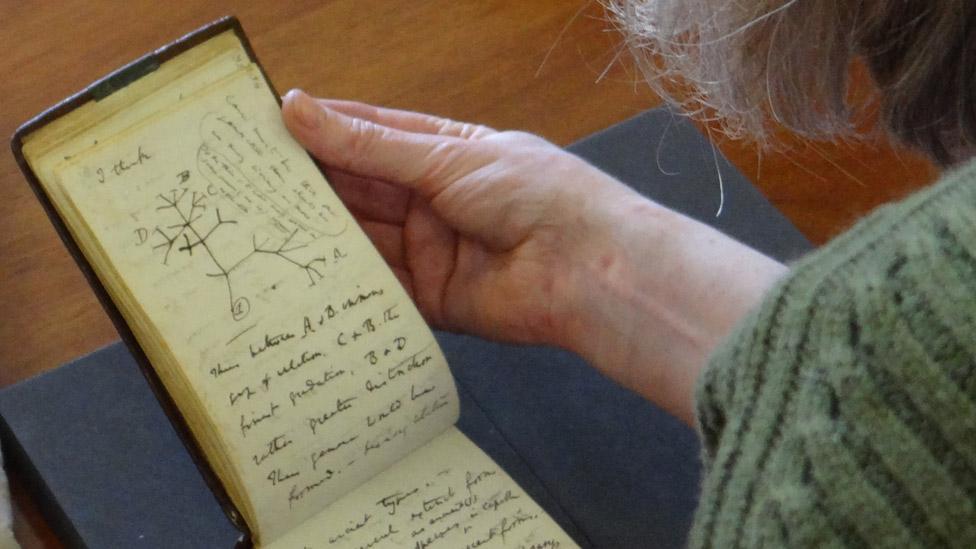Cambridge University plant collection awarded Designated status
- Published

The herbarium is held in climate-controlled facilities in the University Botanic Gardens
A collection of dried plants at the University of Cambridge has been awarded Designated status by Arts Council England.
The herbarium, established in 1761, holds more than one million plant specimens from around the world.
The collection includes almost 1,000 specimens collected by Charles Darwin on the Voyage of the HMS Beagle.
Curator Dr Lauren Gardiner said the herbarium was a "unique and vital resource".
"We are extremely pleased the herbarium has been awarded Designated status, and that this major biodiversity archive is now recognised officially, alongside the other extraordinary collections held by the University of Cambridge," she said.

Digitisation of the specimens has started to enable much greater use of the collection
The herbarium is located in the University Botanic Garden, external and specimens can be viewed at specific exhibitions, public talks and online activities.
Among the vast collection, 50,000 items are deemed "type" specimens, which means they are selected as the original reference to define a species of plant.
Other specimens were collected by influential naturalists including Alfred Russel Wallace, Joseph Banks, and Hans Sloane.
Some were sent back from famous expeditions including the HMS Challenger Expedition (1872-6), and the Ross Antarctic Expedition of HMS Erebus and Terror (1839-43).
Arts Council England's Designation Scheme, external recognises the pre-eminent collections of national importance held in England's non-national museums, libraries and archives, based on their quality and significance.

Find BBC News: East of England on Facebook, external, Instagram, external and Twitter, external. If you have a story suggestion email eastofenglandnews@bbc.co.uk, external
Related topics
- Published25 May 2022

- Published12 May 2022

- Published5 April 2022
